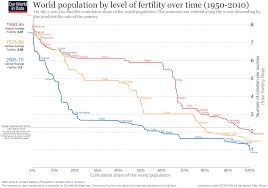Health
Featured
Global Fertility Rates Plummeting: UN Warns of Unprecedented Decline Due to Socio-Economic Factors
Editor
Jun 16, 2025
min read
8 views

The United Nations has issued a stark warning regarding an unprecedented global decline in fertility rates, attributing the significant drop primarily to escalating financial pressures and pervasive work-life balance issues. This demographic shift, detailed in a new UN report released on June 16, 2025, has profound implications for global economies, social structures, and future population dynamics.
The report indicates that fertility rates are falling in nearly every country, with many nations now below the replacement level needed to maintain a stable population. While declining birth rates are often associated with developed economies, the new data reveals a faster-than-expected decline in many developing countries as well. This widespread trend poses a complex challenge that goes beyond mere population numbers, impacting labor markets, social security systems, and healthcare services globally.
Economists and sociologists point to several key drivers behind this demographic transformation. Financial instability, including rising costs of living, housing, education, and childcare, is a primary deterrent for many couples considering starting or expanding families. The burden of student debt in many advanced economies also plays a significant role, delaying major life decisions, including marriage and parenthood.
Work-life balance issues are equally critical. In an increasingly demanding globalized workforce, individuals, particularly women, face immense pressure to balance career aspirations with family responsibilities. The lack of affordable and accessible childcare, insufficient parental leave policies, and rigid work cultures often force individuals to choose between professional advancement and having children. This is exacerbating the trend of delayed parenthood, which in turn contributes to lower overall fertility.
Changing societal norms and individual preferences also play a role. There is a growing emphasis on personal development, educational attainment, and career fulfillment, especially among younger generations. Many individuals are choosing to remain childless or have fewer children by choice, driven by a desire for greater autonomy, environmental concerns, or simply a different vision for their lives. The increased participation of women in higher education and the workforce has also shifted traditional family structures, empowering women to make more informed choices about their reproductive lives.
From an economic perspective, plummeting fertility rates present a dual challenge: a shrinking and aging workforce. As the proportion of elderly individuals increases relative to the working-age population, there will be increased pressure on pension systems and healthcare services. This demographic imbalance could lead to labor shortages, reduced economic dynamism, and slower innovation. Countries that have historically relied on a robust young workforce may face significant headwinds in maintaining economic growth.
Policy responses to this global challenge vary. Some governments are implementing pro-natalist policies, offering financial incentives, extended parental leave, and subsidized childcare to encourage larger families. Others are exploring increased immigration as a means to offset population decline and maintain workforce levels. However, experts warn that a comprehensive approach is needed, addressing the underlying socio-economic issues that deter family formation, rather than just focusing on short-term incentives.
The UN report emphasizes the need for a global dialogue on sustainable population strategies that respect individual reproductive rights while addressing the long-term implications of these demographic shifts. The findings will likely spur further discussions at upcoming international forums, as policymakers grapple with the complex task of adapting to a world with fewer, older, and potentially more unequal populations.
Editor
League Manager Editorial Team





Leave a Comment